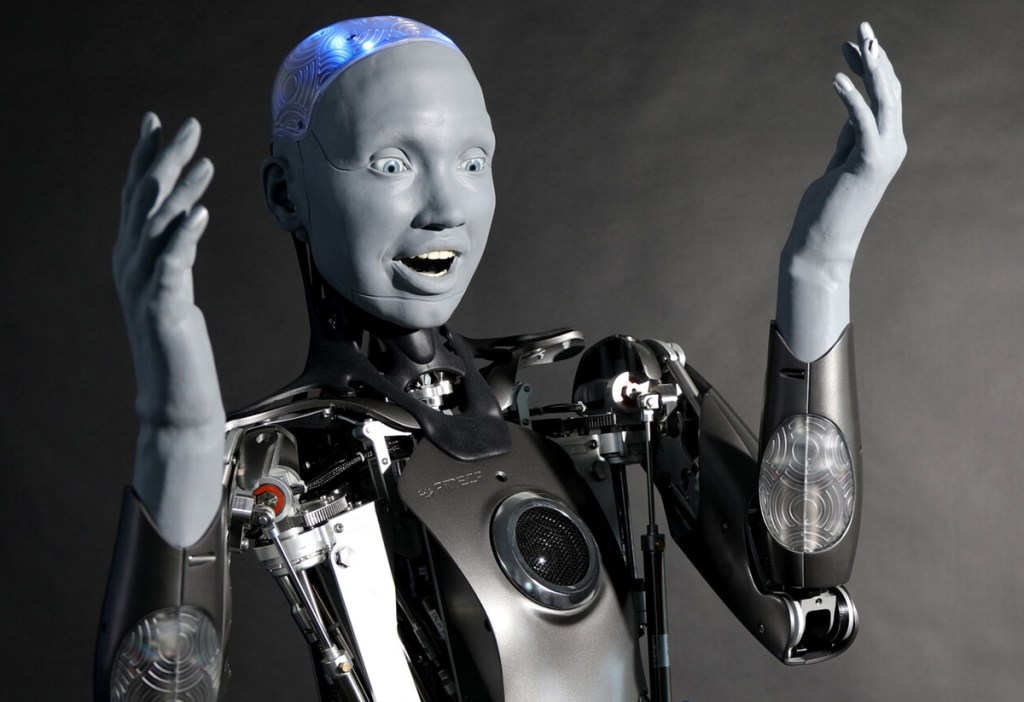Join our daily and weekly newsletters for the latest updates and exclusive content on industry-leading AI coverage. Learn More
Engineered Arts, a United Kingdom firm making humanoid robots, has restructured as a U.S. company and raised $10 million.
The reason for moving to the U.S. is to expand its footprint and meet U.S. growing demand. And the company raised the new round to accelerate product refinement, manufacturing readiness, scale production, and investment in advanced business systems.
This milestone brings Engineered Arts’ total funding to $16.2 million to date. And it advances its mission to integrate humanoid robots into daily life with a human-focused approach to AI. Engineered Arts’ humanoid entertainment robots are designed to foster natural and intuitive interactions, enhancing experiences at businesses, science centers, theme parks, and conventions with unforgettable, one-of-a-kind engagements.
Helium-3 Ventures led the Series A funding, with additional participation from AppDirect CEO Nicolas Desmarais, Belvoir Investments and a consortium of investors, including ThirtySeven Holdings and Figueira Capital. Matthew Bellamy, frontman of the English rock band Muse and a partner in Helium-3 Ventures, will join Engineered Arts’ board as an observer.
“Our motto is simple: ‘Be wow!’” said Will Jackson, CEO of Engineered Arts, in a statement. “When you meet one of our robots, you’ll experience a connection to technology in the most human way possible. The saying goes, ‘The future is already here; you just haven’t seen it yet.’ We’re changing that. Get ready to experience the power of embodied AI.”
Scaling robots
While many companies are just beginning to explore the development and commercialization of humanoid robotics, Engineered Arts has been a pioneer in the field for over 20 years.
With a proven track record, the company has deployed over 200 robots worldwide and developed six distinct humanoid robotic models, all ready to scale. Two years ago, footage about Ameca — its most advanced humanoid robot — went viral, captivating millions with videos showcasing its conversation with researchers.
The new funding will enable Engineered Arts to make its full-sized and desktop robots more accessible, launch a virtual robot character platform, and expand its cloud-based AI services to enhance product features and fleet deployment. Focusing on next-generation robot hardware development, Engineered Arts will enhance dexterity and locomotion to bring humanoid robots closer to everyday functionality.
Additionally, scaled support and regional offices will enable Engineered Arts to provide customization for specific use cases. The company plans to hire approximately 20 new employees for the Redwood City, California, location over the next year-and-a-half, ranging from top-level execs and sales to software, assembly, and support engineers.
“We envision a world where the virtual seamlessly integrates into everyday life,” said Jackson, in a statement. “Our robots are designed to support, entertain, inform, and educate —providing a genuinely human-centric vision of AI-driven technology.”
Captivating and engaging applications

Engineered Arts’ humanoid robots are already making an impact. They serve marquee customers like Madison Square Garden’s Sphere in Las Vegas, where they deliver entertainment and drive customer engagement.
Pharmaceutical giant GSK uses them to connect with attendees at trade events. At the Computer History Museum in Mountain View, California, Ameca sits at the center of an exhibit, “Chatbots Decoded: Exploring AI,” an immersive experience that takes visitors through the history, current landscape, and future possibilities of chatbots and AI.
“Ameca is a milestone in the history of AI, bringing together decades of work in robotics, natural language processing, large language models, and more,” shared Kirsten Tashev, vice president and chief curatorial and exhibitions officer at CHM, in a statement. “It delivers a highly engaging, nearly mind-blowing experience for our visitors. With its lifelike expressions, dynamic personality, sharp sense of humor, and remarkable ability to ‘read the room,’ Ameca continually amazes and delights audiences of all ages — even younger visitors, who are notoriously hard to engage.”
Tashev cites partnering with Engineered Arts as a significant contributor to the exhibit’s success.
“Interactive experiences must be reliable, safe, and magical in the education and entertainment industry. It’s a tall order, but Engineered Arts masterfully does all three,” Tashev said.
Source link


